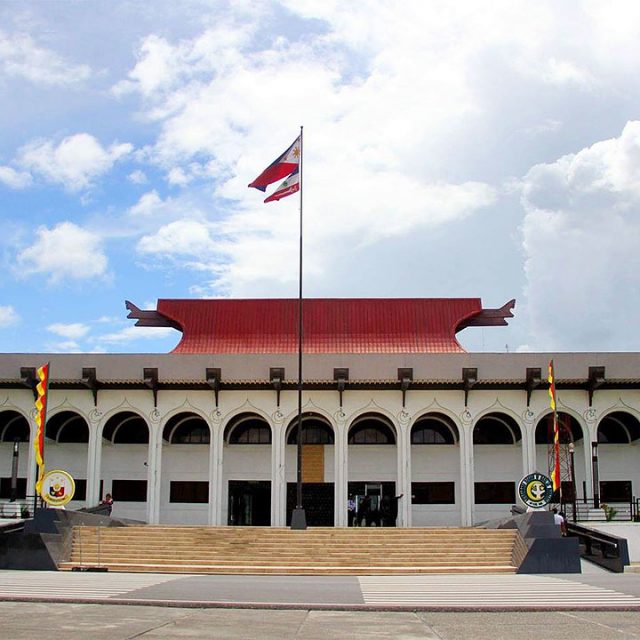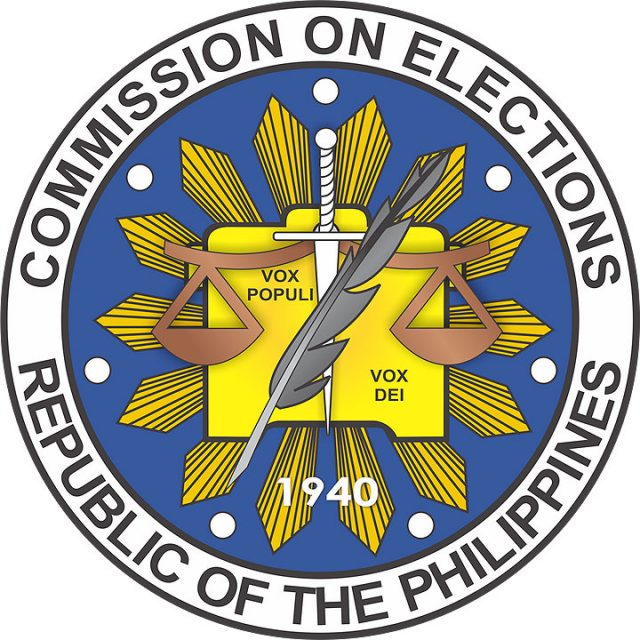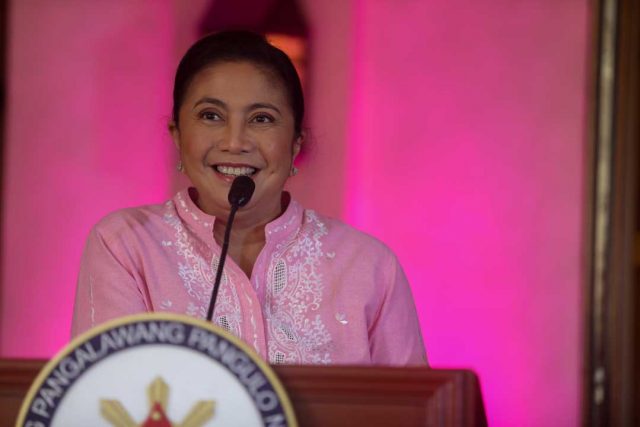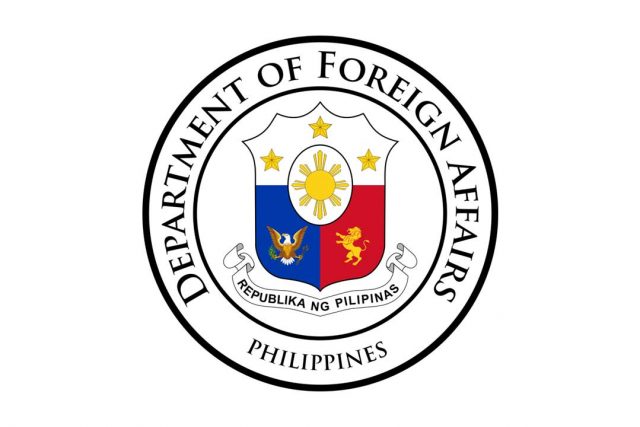Vice-President Maria Leonor “Leni” G. Robredo on Friday said the Mandanas ruling should pave the way for the direct participation of ordinary people in the budget process and local governance.
The Supreme Court ruling, named after Batangas Governor Hermilando I. Mandanas, clarified that the share from the International Revenue Allotment (IRA) of local governments does not exclude other national taxes.
The World Bank in June said the IRA are programmed to increase by 55% in the 2022 budget.
“Napakalaking opportunity ito kasi talagang lolobo yung kanilang IRA. Pero, having said that, lalaki ’yung opportunity, pero kailangan kasing maayos ’yung roll out para ma-harness ’yung lahat ng opportunities available,” Ms. Robredo told reporters in a forum held in Sorsogon City. (It is such a great opportunity because their IRA will really balloon. But, having said that, their opportunity will increase but the roll-out has to be done well so they can harness all the opportunities available.)
The ruling must push local leaders to promote inclusive governance, which will allow ordinary people to participate in government processes at the local level, said Ms. Robredo, who is running for president in next year’s national elections.
“Solutions to problems on the ground should come from affected people,” she said, noting that local leaders must create mechanisms that would allow marginalized sectors to take part in the crafting of local programs meant for them.
Participatory leadership will encourage government officials to do better because they will work together with ordinary citizens, Ms. Robredo said.
During her stint as Camarines Sur representative, Ms. Robredo filed a bill seeking to encourage civic groups and the private sector to take part in local governance. She also filed a measure that would allow the active participation of civic groups in the identification and planning of programs and projects that would be funded by the National Government.
BELLO HITS AT ISKO
Meanwhile, vice-presidential candidate and socialist writer Walden Bello took Manila Mayor Francisco M. Domagoso to task for his recent remark saying that ending labor contractualization would not be among his immediate priorities if elected President.
Mr. Domagoso, who is running under Aksyon Demokratiko, made “clear his pro-billionaire, anti-worker position… when he spoke on the issue of contractualization,” said Mr. Bello.
“Mayor Isko is at least honest: contractualization is the ‘least of his problem’ — just as it has been the least of the problems of every single politician who has run this country in the service of billionaire backers,” said Mr. Bello, who is running in tandem with labor leader Leodegario “Ka Leody” De Guzman.
Mr. Bello said contractualization is the “single most important problem” of Filipino workers “who have suffered for so long from job insecurity, low wages, insufficient benefits, and bad working conditions.”
“These workers have waited long enough and have sacrificed so much producing so much wealth in the country — and yet they have been deprived of even just a fair share of the wealth they have produced over the past decades,” Mr. Bello said.
“…Isko wants to make workers wait until the situation ‘gets better’ before he even addresses contractualization,” he added. “Ka Leody and I believe they have waited long enough and refuse to let them wait a minute longer.”
In 2019, President Rodrigo R. Duterte vetoed a Security of Tenure Bill, this despite his campaign promise of ending labor contractualization. He made no mention of the campaign promise in his last address to Congress.
Think tank IBON Foundation has called the administration’s job creation record “the worst in the six administrations and 35 years after the Marcos dictatorship.”
The average number of annual jobs created under Mr. Duterte’s term decreased to 313,000 from 827,000 under his predecessor, IBON Executive Director Sonny A. Africa told BusinessWorld in July.
BATO OFFERED HIS SLOT TO SARA

Meanwhile, Senator Ronald “Bato” M. dela Rosa, the standard-bearer of one faction of the Partido ng Demokratikong Pilipino-Laban ng Bayan (PDP-Laban), on Friday confirmed that he had offered his presidential candidacy slot to Davao Mayor Sara Z. Duterte-Carpio, whom he believes is the best candidate to continue the president’s legacy.
“My personal interest can take a backseat in favor of the most winnable candidate who can surely provide continuity to the Duterte legacy,” he told BusinessWorld via Viber.
“Six years of Duterte presidency is not enough to reform this country,” he added. “We need another six years of another iron-fisted Duterte brand of leadership to hopefully transform this country closer to the Singaporian model.”
Mr. Dela Rosa earlier said that if he is elected, he will continue the flagship programs of the current administration, including the controversial war on drugs.
The party’s presidential candidate, who had a talk with the Davao mayor during his visit to her office last Monday, noted that she gave no definite answer to his proposal, but he “saw hope in her eyes.”
“I am not losing hope until Nov 15.,” Mr. Dela Rosa said. “I saw the burning patriotism in her eyes while we were talking.”
The Commission on Elections allows political parties to replace a member who filed a certificate of candidacy with another member. Filing ended on Oct. 8 but substitution is allowed until mid-November.
Ms. Carpio previously said that she would not run for national office next year, as she had filed for a third term as mayor.
NO PERSONALITY POLITICS
Energy Secretary Alfonso G. Cusi, who leads the faction of PDP-Laban that De La Rosa is running under, clarified on Friday that his group is not pushing personality politics in endorsing candidates.
“Hindi po (It’s not) personality politics. What we are pushing [for] is real party politics based on programs. We are just saying that the President will be very good endorser… He will [show] real leadership [because he] is willing to take on the risk to make things happen,” he said in a television interview with CNN Philippines’ The Source on Friday.
He was referring to President Rodrigo R. Duterte who had previously said that he would retire from politics. However, after originally suggesting that he run for vice-president, the ruling party is now pushing him to run for senator next year.
Mr. Cusi has confirmed that there were efforts to convince Mr. Duterte to run for senator in the upcoming elections.
“The six years he has been President is not enough… for [the] foundations that he has laid down. I believe that the perspective and the wisdom that he has earned as mayor and as chief executive will bring a lot of changes at the senate at the legislative body,” he said.
“It’s a way also for us, PDP party, to advance the program of government that has been started by him in 2016,” he added.
Mr. Cusi also said that Mr. Duterte was firm about his decision to not run for vice-president.
“What we are offering the people, the country, is the tandem of Sen. Bato and Sen. Bong Go [who are running for president and vice-president, respectively], because we believe this combination will help further PDP’s programs,” he said in a mix of Tagalog and English.
The national elections are set to be held on May 9, 2022. — Kyle Aristophere Atienza, Angelica Y. Yang and Alyssa Nicole O. Tan













